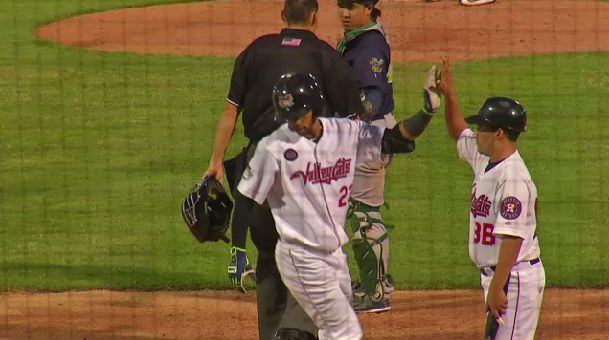New York Attorney General Letitia James is one of 18 state attorneys general asking the U.S. Supreme Court to hear the latest challenge to baseball's antitrust exemption.
James announced she was joining what her office called a "bipartisan coalition" of attorneys general on Monday, supporting a case filed in September by the Tri-City ValleyCats and Oneonta Athletic Corporation against Major League Baseball Commissioner Rob Manfred's office. That case was filed after a 2020 move by MLB to cut the number of affiliated minor-league teams from 160 to 120. The move eliminated the New York-Penn League and stripped the ValleyCats of an affiliation they'd had with the Houston Astros since the days before their move from Pittsfield, Mass., to Troy in 2002.
MLB's decision also stripped minor-league affiliation from the Auburn Doubledays, Batavia Muckdogs and Staten Island Yankees. The ValleyCats now play in the independent Frontier League, while the Doubledays and Muckdogs became summer college teams in the Perfect Game Collegiate Baseball League. The Staten Island Yankees ceased operations after losing affiliation.
"Due to a series of judicial decisions dating back a century, Major League Baseball is exempt from antitrust laws, meaning the action to cut 40 teams and harm communities throughout the nation cannot be effectively challenged under the antitrust laws," read a press release from James' office. "Attorney General James and the coalition urge the U.S. Supreme Court to reverse the prior decisions and enable the attorneys general to take action under the antitrust laws."
In filing the brief, James joined the attorneys general of Arizona, Colorado, Connecticut, Indiana, Kansas, Louisiana, Massachusetts, Minnesota, Montana, New Jersey, New Mexico, Pennsylvania, Tennessee, Vermont, Virginia, West Virginia and the District of Columbia.
The Justice Department had previously asked a federal appeals court in February to narrowly consider the antitrust exemption, which was created by the U.S. Supreme Court in a 1922 case involving the Federal League, when Justice Oliver Wendell Holmes wrote in a decision that baseball was not interstate commerce but exhibitions exempt from antitrust laws. The Supreme Court reaffirmed the decision in a 1953 case involving New York Yankees farmhand George Toolson and in the 1972 Curt Flood decision, saying any changes should come from Congress. Flood had fought his trade from St. Louis to Philadelphia before the 1970 MLB season, challenging the Cardinals' right to deal him. It was a case he and the MLB Players Association ultimately lost, but it led to an arbitrator striking down baseball's reserve clause in 1975 and paved the way for free agency in the sport.



